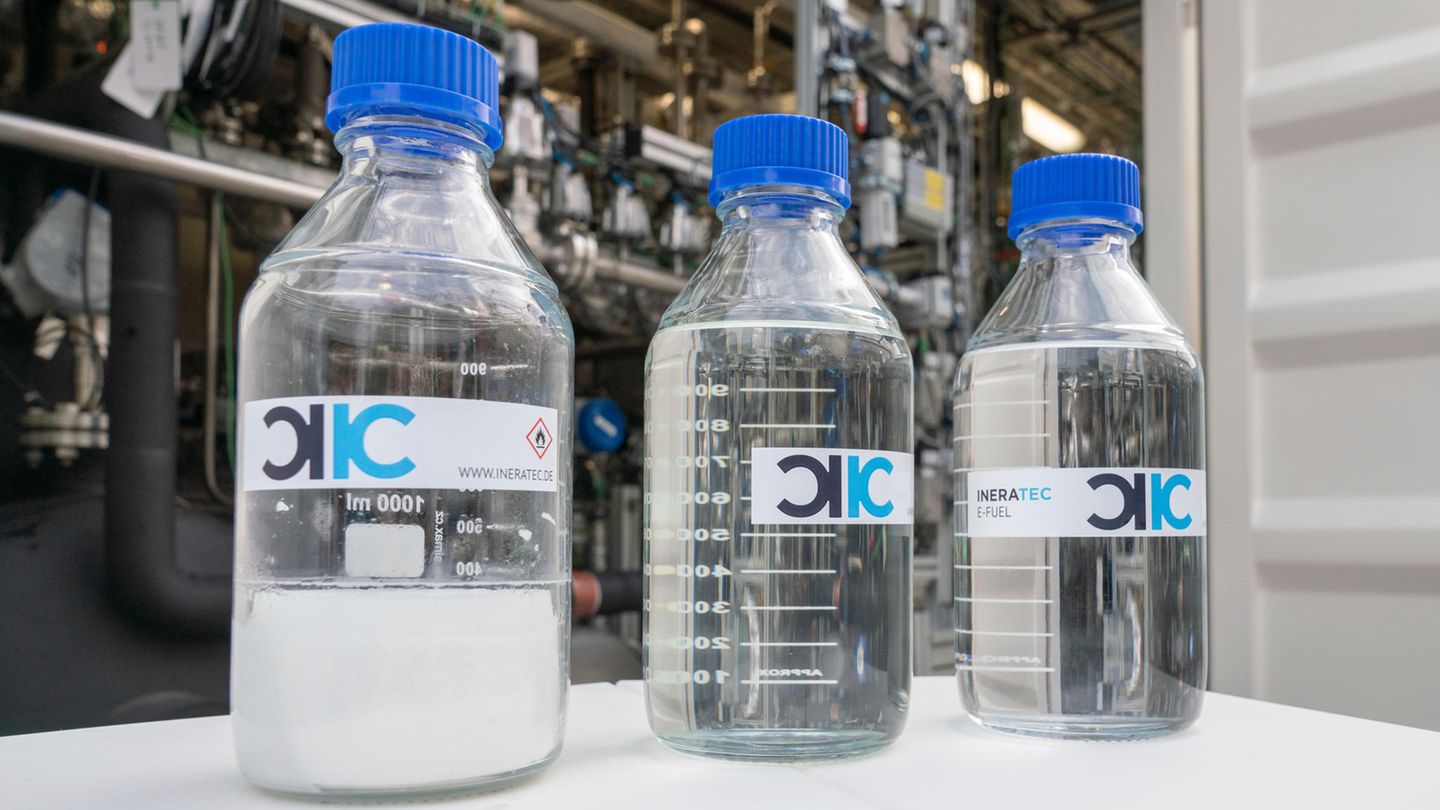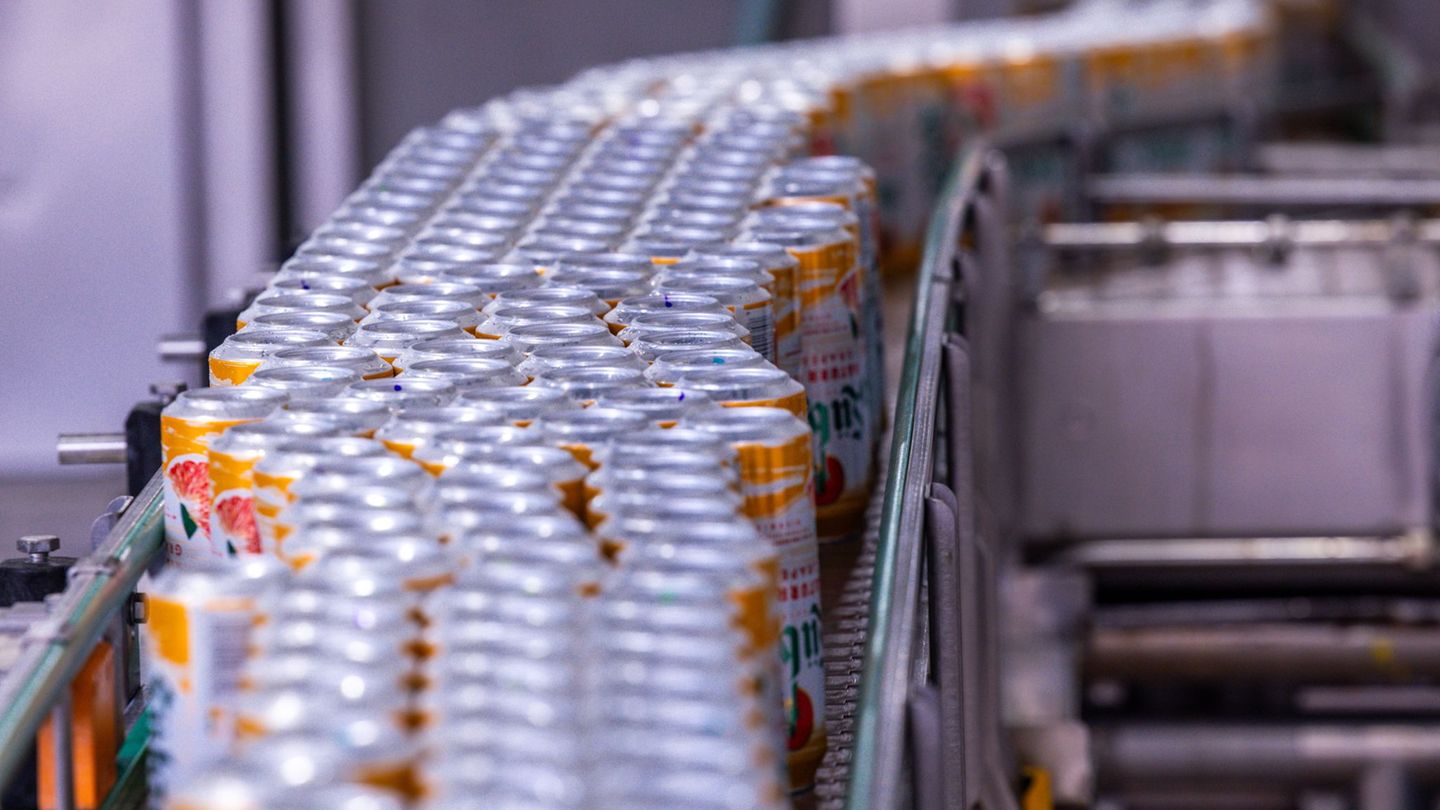Compared to petrol and diesel, e-fuels should be more climate-friendly. But there is also a lot of criticism. An ADAC test has now shown that artificial fuels can actually have a positive effect on the climate. At the same time, there is still room for improvement.
It sounds like a sustainable solution: refuel cars with combustion engines with e-fuels instead of mineral fuels and thus protect the climate. In fact, it should be possible to fill up with artificially produced fuels without any problems, provided the vehicles are approved for this. This was the result of a test by the ADAC. The pollutant emissions did not deteriorate through use.
Karsten Schulze, President of Technology at the German Automobile Club, said in a press release: “Our results show that further optimized e-fuels have the potential not only to improve the CO2 balance in the existing vehicle fleet, but also to reduce pollutant emissions. You would have to do that don’t wait for the renewal of the entire fleet.” According to the ADAC, e-fuels, the production of which binds greenhouse gases, are therefore a good addition to the expansion of electromobility, as they can also contribute to environmental protection.
Only good-quality prototype e-fuels were tested, but they have not yet exploited the full potential of artificially produced fuels. There is still room for improvement; the measurements carried out have shown that the composition of the e-fuels can still be improved. If an e-fuel is optimally designed, it could have a positive effect on air pollution control, they say. In fact, there are currently hardly any production facilities. However, new plants are planned, which should produce further optimized fuels.
Artificial fuel debate
According to the ADAC, mineral and artificial fuels can be mixed together so that the proportion of e-fuels can be continuously increased. The automobile club is therefore of the opinion that the total demand for e-fuels could very well be covered at the moment – contrary to existing arguments.

“The opportunity should now be seized to continuously reduce the fossil share by adding e-fuel and thus make an important contribution to environmental protection right now,” demands Schulze. “In order to achieve this goal, it is important that politicians create incentives and perspectives for manufacturers. Because the high investments and development costs require planning security.” At the end of October, the EU agreed on a ban on the sale of new vehicles with internal combustion engines from 2035. However, it is still unclear whether artificial fuels will remain permitted or not. In Germany, the topic has sparked a debate.
Federal Transport Minister Volker Wissing (FDP) said that e-fuels are “the only convincing answer to the question of how the existing fleet in Europe can become climate-friendly”. The FDP parliamentary group leader in the Bundestag, Christian Dürr, also welcomed the European compromise on phasing out combustion engines. “The internal combustion engine should continue to exist with alternative fuels,” says Dürr. E-fuels are “the only convincing answer when it comes to how the existing European fleet can become climate-neutral,” emphasized the FDP politician.
VW and Porsche for the use of e-fuels
For example, VW CEO and Porsche boss Oliver Blume has spoken out in favor of the continued use of e-fuels. The German Association of the Automotive Industry (VDA) supports the use of e-fuels for the existing fleet of combustion engines.
Union transport politician Thomas Bareiß (CDU), on the other hand, sharply criticized the EU decision. He said it was “not a good day for Germany as an industrial location and for affordable mobility”. The test order for e-fuels is “not legally binding”. From the point of view of the Green Federal Environment Minister Steffi Lemke (Greens), vehicles that can be refueled with e-fuels will be the exception rather than the rule in the future. Greenpeace assumes that e-fuels will only be used in special vehicles such as fire engines or ambulances in the future.
fuel saving
Fuel-saving tips that unfortunately bring nothing
Production of e-fuels requires large amounts of electricity
The production of e-fuels requires a lot of energy. Critics argue that the fuels are very expensive and inefficient. According to the ADAC, due to the high electricity demand, it makes sense to use excess green electricity, which is generated in sunny or windy areas.
The European compromise on the end of combustion engines includes a request to the EU Commission to review whether the use of e-fuels for cars could be an option in the future. The decision will be reviewed again in 2026. Then there should also be clarity about the future of artificial fuel.
Sources: , with material from the dpa
Source: Stern
I am a 24-year-old writer and journalist who has been working in the news industry for the past two years. I write primarily about market news, so if you’re looking for insights into what’s going on in the stock market or economic indicators, you’ve come to the right place. I also dabble in writing articles on lifestyle trends and pop culture news.




